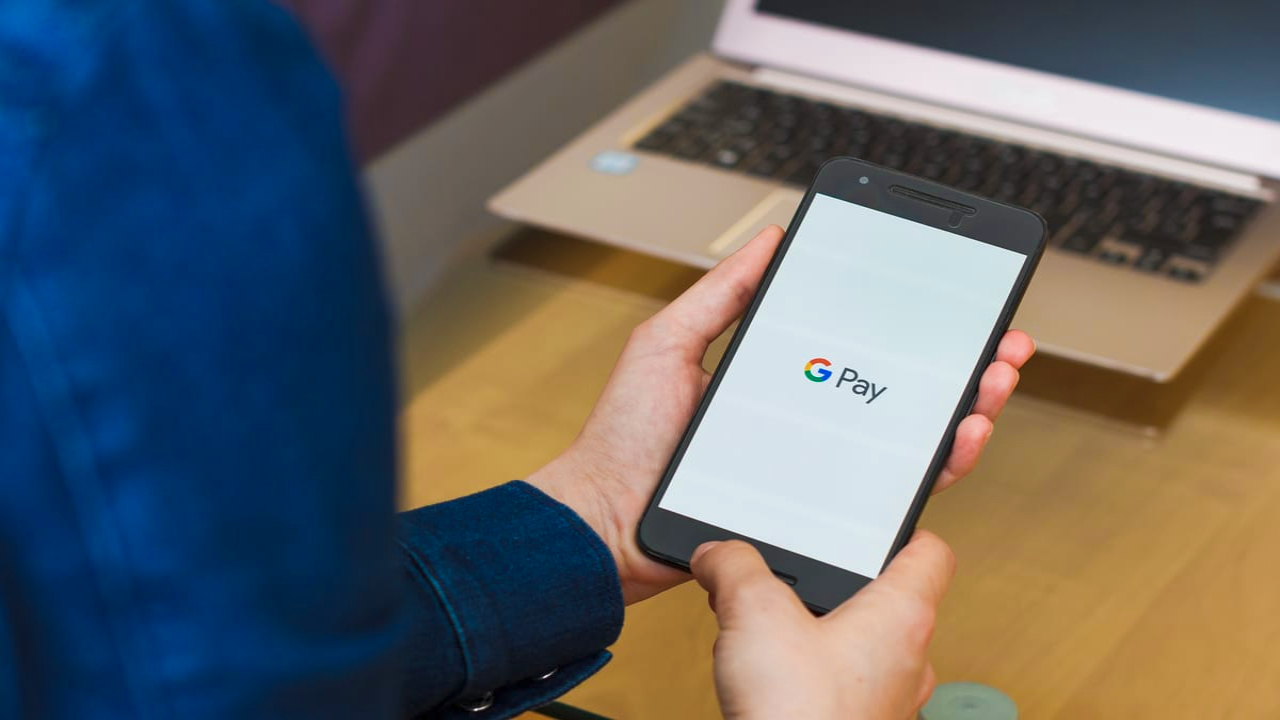New Google Pay app is out of beta and riddled with issues – here's why
Old Google Pay app winds down, as new Google Pay app offers early access


Get all the latest news, reviews, deals and buying guides on gorgeous tech, home and active products from the T3 experts
You are now subscribed
Your newsletter sign-up was successful
Google is endlessly busy in the tech sector: amid reports of a possible Google Pixel Fold, reinventing the form of the Google Pixel-line of handsets, including the Google Pixel 4 and the Google Pixel 5, there's a new Google Pay app.
Google has been busy in the lab drumming up a new beta version of the Google Pay app for some time. Despite this, the old app has still existed in the Google Play store for those who weren’t quite ready to make the leap. That is, until now.
The older Google Pay app will completely shut down from April 5 in the US; it means that users who use the Google Pay app will have to download a completely new version to continue using it. It has sparked a flood of grievances, not least because Google is forcing users to switch, but because the new Google Pay app has a plethora of functionality issues.
- Apple MacBook Pro 14-inch and 16-inch: Apple firms up release date
- PS5 and Xbox Series X shortages could last throughout the 'first half of 2022'
- Nikon Z9 rumors confirmed: Nikon unveils mirrorless flagship with 8K video
Google’s redesigned Google Pay places greater emphasis on payment transfers between friends. Split utilities between flatmates, or divvy up the bill at a post-lockdown dinner – what you now get is a more group-focused payment experience, plus cashback rewards, alongside the ability to scan your Gmail and Google Photos for receipts.
This may sound good on paper, but the new app is reportedly not delivering on the basics. Scanning Google Photos for receipts is all well and good, but it doesn't take into account the excessive delete prompts that Google Photos has been frustrating its userbase with on Android 11.
In the new Google Pay app, Google is less concerned with the unremarkable territory of secure card transactions through NFC, opting for what it thinks users need and removing some of the most robust features of its predecessor that we enjoyed using on our best Android phones.
Currently, Google is rolling out emails to users detailing the changes in the new Google Pay app: NFC contactless functionality will be virtually the same, but Google will compel users to create a fresh account, leaving behind your existing Google account for P2P payments.
Get all the latest news, reviews, deals and buying guides on gorgeous tech, home and active products from the T3 experts
If that sounds worrisome, then there's more to come. The new app brings a slew of reported functionality complaints; below, we've detailed what it means for you and your new Google Pay experience.
Google Pay: Contacts
In being forced to create a new account, you lose the ability to transfer cash to your new contacts. Using a Google Pay compatible model from our best phones guide, your contacts must also download the app and register a new account. That’s pretty frustrating for an app that is predicated on seamless payment, placing several obstacles in your way to being able to perform Google Pay's core offering.
This stripped-back functionality isn’t just exclusive to the new Google Pay app, either. From April 5 in the US, the new Google Pay app ends web support for payments, as well. You’ll no longer be able to view payment activity, transfer money to friends and family, or even see your account balance from the browser.
It's a significant loss to people who use the web-based service, especially those who prefer to use one of our best laptop models and make payments online.
Google Pay: Friends and Family
As a result of the planned changes to your account, it means lengthy explanations to friends and family around the new Google Pay app, long-winded conversations over the subsequent loss of functionality, and articulating how that impacts previously held payment setups on your Mum's Samsung Galaxy S21.
It’s a frustrating task, and it echoes an increasing trend from Google, which flippantly shuts down services like Google Play Music, Google Mail Inbox, Hangouts, and Cloud Print, needlessly repackaging them. For example, Google Play Music became YouTube Music, but to what gain?
Some will argue that these changes are often just visual makeovers. Still, with Google Play Music, you might've kept the same music library, but the overhauled interface and streaming app modifications can be troublesome, leading to functionality hitches later down the line.
Worse is the fact that such changes can offer no user benefits and could be spurred by Google’s internal politics rather than customer-led decisions to benefit users.
Google Pay: Account Login
Talk of the number of devices you can have logged in on apps' accounts is always top-of-mind in the tech world. Take the likes of WhatsApp and its recent desktop login changes, introducing desktop biometric authentication, and its recent update to let you log out of multiple devices to boost multi-device operation.
Well, the new Google Pay app has another cumbersome curb to its usability in that you can only be logged in on one device at any one time. Again, the pro-Google gallery will proffer security as the reason for this, but it potentially restricts Google Pay's versatility, especially if it finds its way onto our best smartwatches like the old Google Pay app.
Google is apparently nonplussed, but at T3 it seems like a devilishly bad constraint on a payment app, eradicating the synergistic link-up between sending money to people through Google Pay and NFC tap-and-pay. It means two services that require separate logins housed in a single app – i.e. very impractical.
Overall, it's definitely not good news: as part of the transition to the new system, users aren't being compensated for the drop in functionality – and, in this case, the losses are substantial.
Even though Google Pay is available on iOS, it may well be worth steering clear of the new Google Pay app and sticking to using Apple Pay on our best iPhone models, as right now there doesn't appear to be a great number of new features to sell people on. Unfortunately, Android users can't do the same and switch to Apple Pay.
Maybe this is a broader reflection of a turbulent year with the pandemic, but it doesn't appear to be out of sync with the search giant's endlessly shifting priorities, plus the knock-on effect that trickles down to Google's userbase.
Source: Ars Technica

Luke is a former news writer at T3 who covered all things tech at T3. Disc golf enthusiast, keen jogger, and fond of all things outdoors (when not indoors messing around with gadgets), Luke wrote about a wide-array of subjects for T3.com, including Android Auto, WhatsApp, Sky, Virgin Media, Amazon Kindle, Windows 11, Chromebooks, iPhones and much more, too.